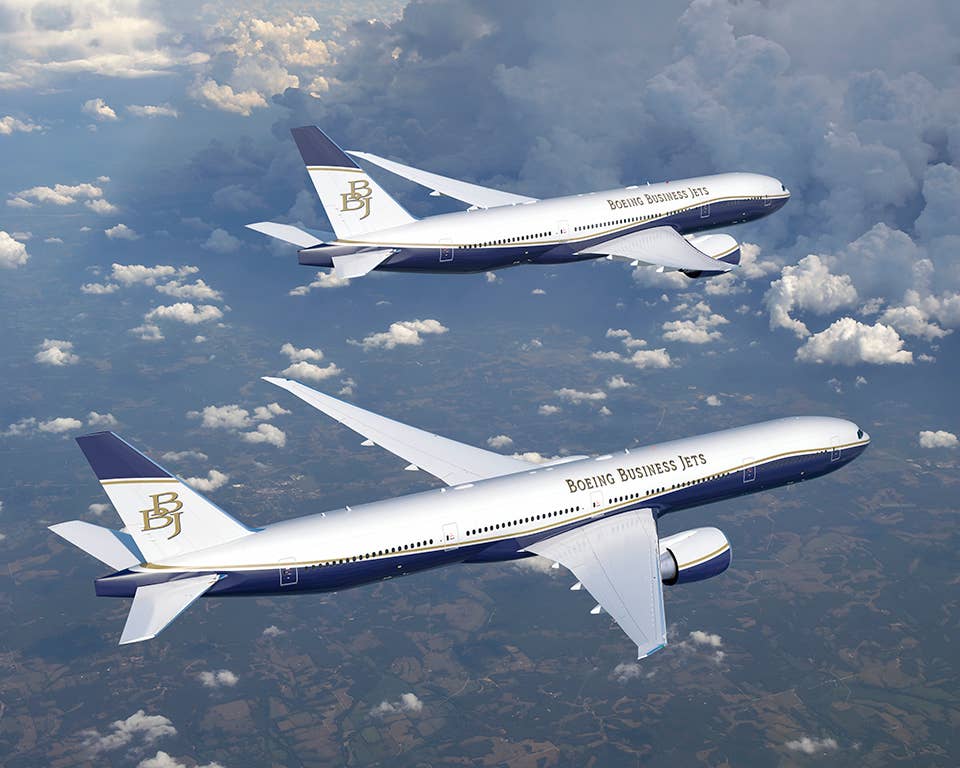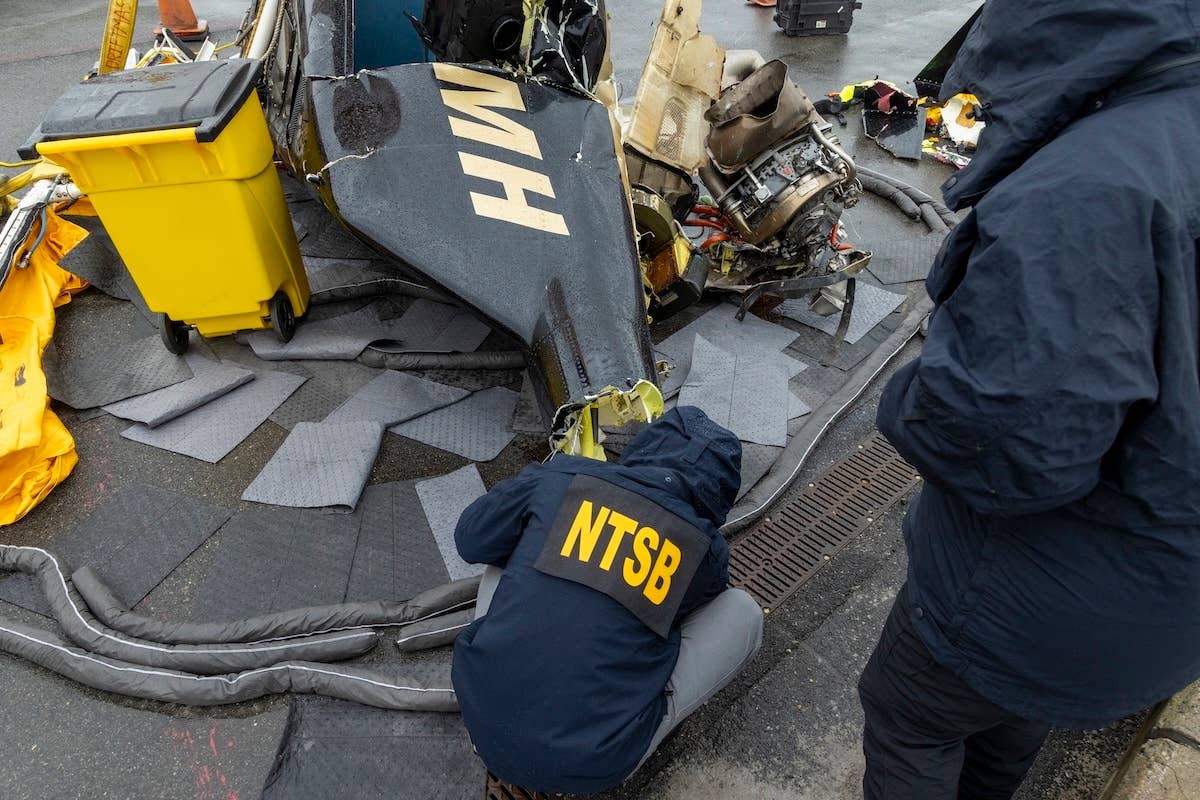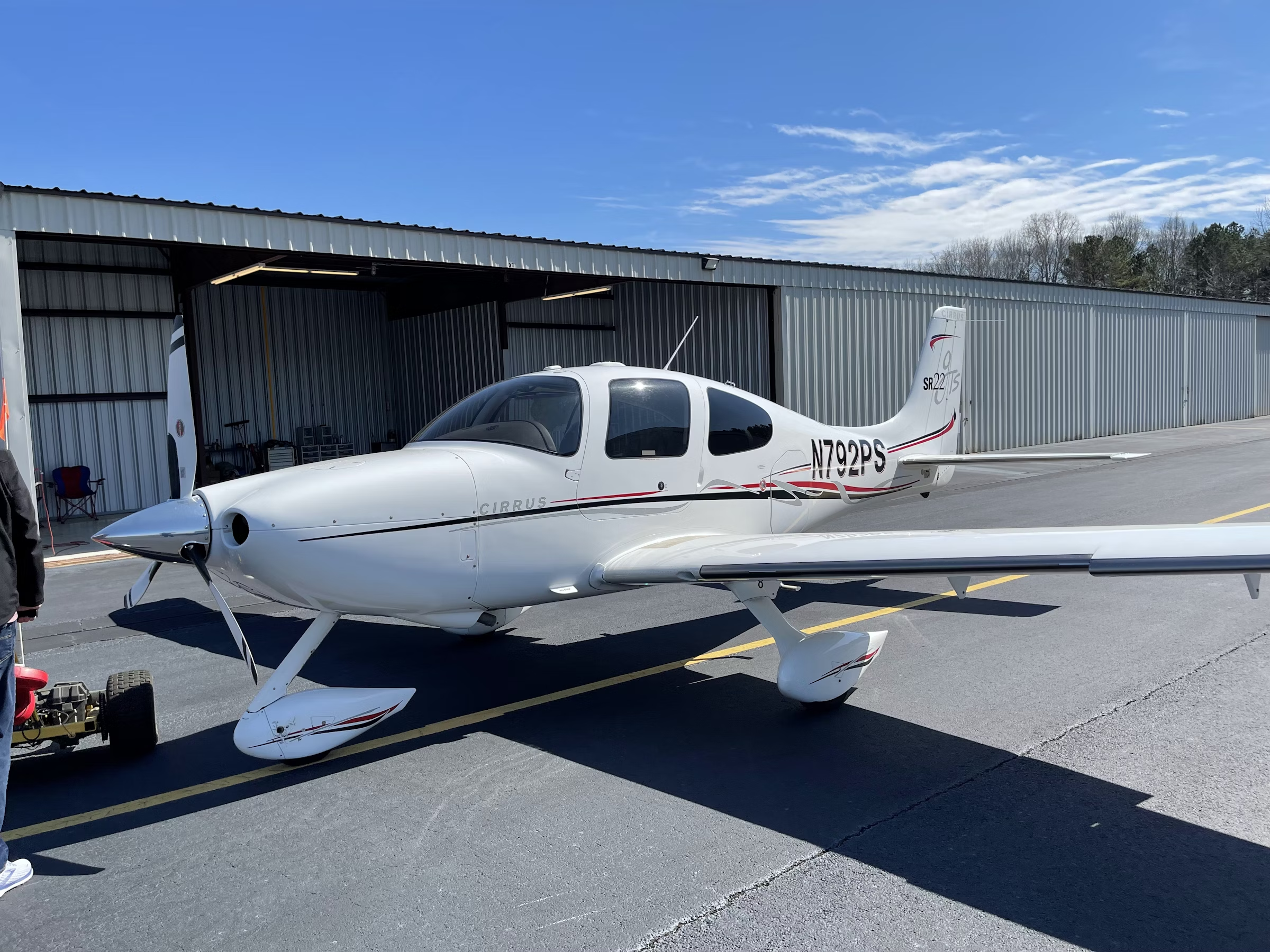Boeing Sees Strong Demand for Bizliners
Boeing Business Jets (BBJ) offers a portfolio of ultra-large-cabin, long-range airplanes suited for business, private, charter, corporate and head-of-state operations.

With more than 260 Boeing Business Jets sold, BBJs are supported by Boeing’s global service network—the largest OEM-provided network of services, parts, and maintenance. [Courtesy: Boeing]
Boeing Business Jets (BBJ), a unit of Boeing (NYSE: BA), has secured four orders for BBJ 737 MAXs, it said this week at the National Business Aviation Association’s Business Aviation Convention and Exhibition (NBAA-BACE) in Orlando.
One widebody BBJ entered into service, and the manufacturer said it also expects to deliver two BBJ 737 MAXs this month.
Boeing executives—Erika Person, president of Boeing Business Jets; Alex Fecteau, director of marketing of Boeing Business Jets; and Samir Sahgal, deputy vice president, commercial business, Boeing Global Services—presented during the press conference. They shared how even the “bizliner” (traditional airliner aircraft converted for business travel) jet market was benefiting from the pent up demand for private jet travel.
Bizliner Trends
Since April 2020, the demand for bizliners in America and across the world has increased and is almost at a pre-pandemic high, according to Boeing. Of the 117 bizliners in the U.S., which is only 30 percent of the global bizliner fleet, Boeing said it made 111 of them.
Additionally, it said that nearly 75 percent or three out of four of all widebody business jets sold in the last 21 years had been Boeing Business Jets, including the 787 Dreamliner and the Boeing 777.
Overall, Boeing said it sold more than 260 bizliners to customers worldwide. In the Americas, Boeing said the largest BBJ customers are governments, representing 40 percent of the market. Second are private users—30 percent—then corporate travel, representing 19 percent.
Based on Conklin and de Decker data it sampled, Boeing said customers who used BBJs saved nearly $1,500 per hour in direct operating cost compared to using aircraft in the large or ultralong-range segment. It also showed that when owners and operators were ready to sell their BBJs, some of the older models were commanding 20-50 percent above commercial market value.
Boeing’s Market Outlook: No Slowdown Yet
As for a broader market outlook, Sahgal shared that despite near-term economic headwinds, Boeing believed the long-term market for business jet travel remained optimistic. Boeing estimated that business aviation traffic has completely recovered at 19 percent above September 2019 rates. Moreover, the company said that even though supply chain challenges still affect the industry, customer demand is driving growth. To that end, Boeing says flight schools have been ramping up capacity to support growth amid a pilot shortage.
Even with talks of a recession, Boeing said it expects global business aviation traffic to stay above pre-pandemic levels as customers realize the benefits that come with it. In terms of the services market, Boeing said that by 2031, across the fast-growing business aviation, civil helicopter, and general aviation sectors, the demand for aircraft services to serve a fleet that is expected to be 400,000 aircraft by then would be worth $335 billion.

Sign-up for newsletters & special offers!
Get the latest FLYING stories & special offers delivered directly to your inbox






